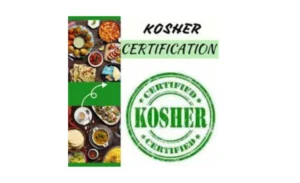Kosher Certification: Meaning, Process, and Global Importance

Kosher Certification
In today’s global food market, consumers pay close attention to the quality and origins of the products they buy. One label that continues to gain recognition across the world is Kosher Certification. While rooted in Jewish tradition, kosher-certified products have found a place in mainstream markets as a sign of cleanliness, ethical preparation, and strict quality control.
What Is Kosher Certification All About?
Kosher certification is a process that confirms a food product follows the dietary laws of kashrut, a set of rules based on Jewish religious teachings. These rules not only define which foods are allowed but also how they should be sourced, prepared, and processed. To receive certification, a product is reviewed and approved by a recognized kosher authority or agency. These organizations carry out inspections and monitor facilities to ensure every detail—from ingredients to equipment—meets kosher standards.
Once approved, the product receives a Kosher Certification on its packaging, such as the OU (Orthodox Union) or Star-K mark. This symbol helps consumers instantly recognize the product as kosher and gives them confidence in its preparation.
The Rules That Define Kosher Food
Kosher laws are specific and deeply detailed. One of the core principles is the complete separation of meat and dairy products. They cannot be cooked together, eaten in the same meal, or even prepared using the same utensils. This rule alone means that kosher-certified facilities must have separate areas and tools for meat and dairy production.
Another important rule concerns the types of animals that can be consumed. Only certain animals—like cows, sheep, and chickens—are considered kosher. Others, like pigs and shellfish, are not permitted. Even when the animal itself is allowed, it must be slaughtered through a religious process known as shechita, performed by a trained individual called a shochet.
Additionally, kosher certification ensures that no non-kosher items come into contact with kosher food during processing or packaging. All equipment used must either be kosher or properly cleaned and prepared before use. These high standards help guarantee that the final product is both spiritually and physically clean.
Why Kosher Certification Appeals to a Wider Market
Although kosher certification originates from religious practice, it has gained popularity among a wide range of consumers. People choose kosher products for various reasons beyond faith. Many view kosher food as cleaner, better supervised, and more transparent in terms of ingredients. For those with dietary restrictions—such as vegetarians, vegans, and individuals with allergies—kosher labels provide extra clarity and assurance.
For food businesses, obtaining kosher certification can open doors to new markets and customer groups. It not only helps them serve Jewish communities but also appeals to health-conscious and ethically minded buyers. In a competitive food industry, having a kosher-certified product can give a brand a strong edge, signaling care and quality in food production.
How Businesses Can Get Certified
The process of getting kosher-certified may seem complex, but it’s manageable with the right support. The first step is to contact a kosher certification agency and submit a detailed application about your products, ingredients, and manufacturing practices. The agency will then schedule an on-site inspection where a trained kosher supervisor assesses the facility.
During the inspection, the agency checks for any potential issues, such as cross-contamination or non-compliant ingredients. If changes are needed, the business receives guidance on how to make adjustments. Once everything meets kosher standards, the company receives an official certificate and permission to use the kosher symbol on its products. Regular follow-up visits ensure continued compliance over time.
This Kosher Certification process is not just a one-time event—it’s an ongoing commitment to meeting strict standards. But for many companies, the benefits far outweigh the effort, especially when it comes to building consumer trust and reaching wider audiences.
Final Thoughts
Kosher Certification is more than a religious label—it’s a trusted sign of quality, responsibility, and transparency. As consumers continue to demand more from the food they eat, kosher-certified products stand out for their careful handling, clear labeling, and ethical sourcing. Whether you’re a brand looking to build credibility or a consumer making informed choices, kosher certification offers confidence in every bite.
Read Also – Kosher Certification in Bangalore: A Growing Need in Food and Manufacturing

